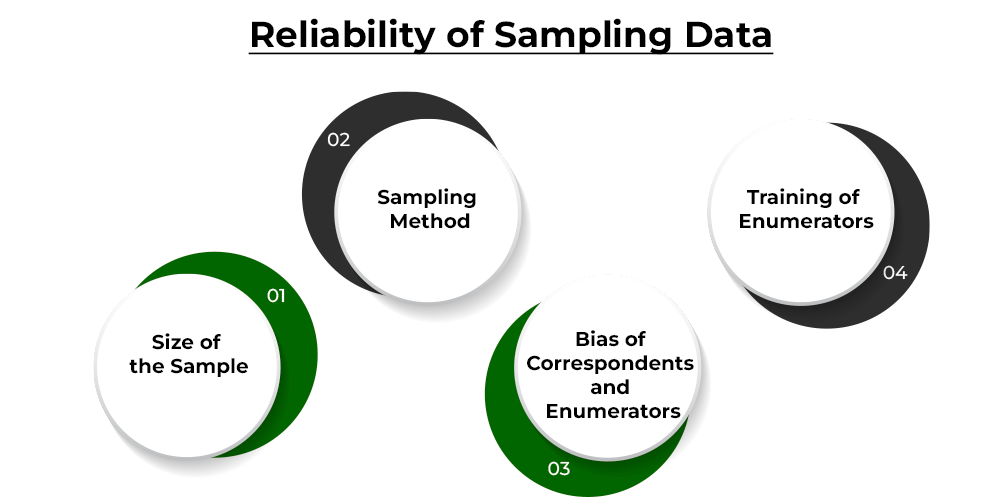What makes a Sampling Data Reliable?
Last Updated :
06 Apr, 2023
Data is the collection of measurement and facts and a tool that help an individual or a group of individuals reach a sound conclusion by providing them with some information. It helps the analyst understand, analyze, and interpret different socio-economic problems like unemployment, poverty, inflation, etc. Besides understanding the issues, it also helps in determining the reasons behind the problem to find possible solutions for them. Data not only includes theoretical information but some numerical facts too that can support the information. The collection of data is the first step of the statistical investigation and can be gathered through two different sources, namely, primary sources and secondary sources.
What is Sampling?
A process of statistical analysis through which the researchers from a larger population, take a predetermined number of observations is known as Sampling. Sampling method depends on the type of analysis being performed for the study; however, it may include systematic sampling or simple random sampling.
Reliability of Sampling Data

If the characteristics of the universe are fully represented by the sample, it means that the sampling data is reliable. The major factors on which the reliability of sampling data depends are as follows:
1. Size of the Sample:
A sampling data’s reliability depends on the size of the sample. If the sample size is very small it will not be able to represent the population. And because of the small size, the conclusions drawn from the sample would lack reliability.
2. Sampling Method:
If the sampling method used is not simple and exhaustive, it will not adequately represent the given population. And because of this, the results drawn will not be dependable.
3. Bias of Correspondents and Enumerators:
There should be least possible biases by the correspondents and enumerators; otherwise, the sampling data would not be reliable.
4. Training of Enumerators:
A sample’s reliability also depends upon the training of the investigators. If the investigators or enumerators are not trained to make them experts in their investigation field, then the sample will lack reliability.
Like Article
Suggest improvement
Share your thoughts in the comments
Please Login to comment...